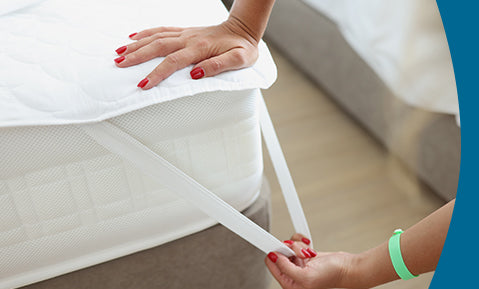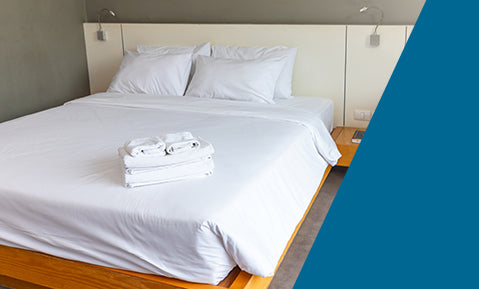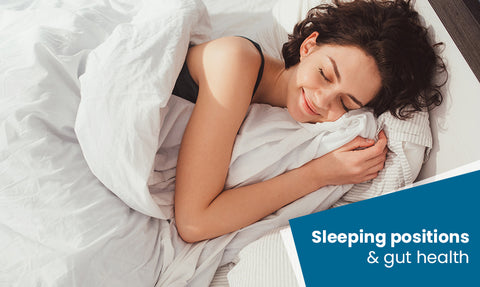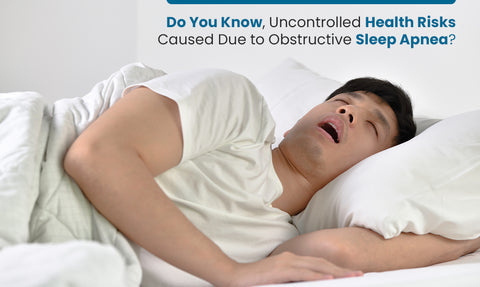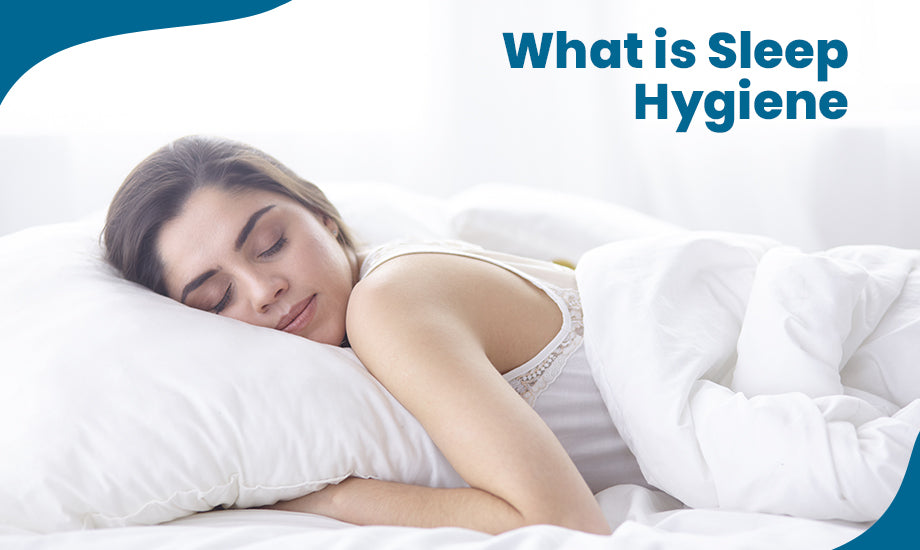
There are days and there are nights? One begs to believe that a good night’s sleep is the like a nectar of life, which each one of us have in equal proportions. That 6-8 hours* of sleep we give to ourselves (and all our vital organs), a much desired rest.
Well, did you ever find yourself tossing and turning in the bed, just unable to sleep?
Do you ever keep on staring at the clock at night and watch the hours pass by…..slowly.
If you can relate yourself, now is the time that you reconsider your general sleeping hygiene and pattern(s).
What is sleep hygiene?
Sleep hygiene was originally developed to treat mild or moderate insomnia (inability to sleep). It is a set of recommendations for environmental (related to the surroundings) and behavioral (things that you do) changes that would promote good night sleep. In simple words, sleep hygiene is a set of good sleep habits which will improve your sleep if you follow them properly.
Today’s lifestyle has further complicated proper sleep hygiene which has negatively affected the basis of consistent good quality sleep. This article will guide you through this topic so that you have a proper and restful sleep which will improve your overall quality of life.
What happens if we don’t follow proper sleep hygiene?
A good sleep is necessary not only for physical wellbeing but also for proper mental functioning. Poor sleep hygiene can lead to insomnia which further causes EDS (excessive daytime sleepiness). This may have bad consequences like accident proneness, increased susceptibility to develop psychiatric disorders, physical health problems (e.g. muscle aches) and increased medical needs (it may lead to heart problems). Proper sleep hygiene improves the sleep quality and reduces sleeping problems. In other words, if you don’t follow sleep hygiene, you may not have a good night sleep and you will feel tired, your brain will get “foggy” and you will be unable to make proper decisions or comprehend things properly the following day.
What are the benefits of following sleep hygiene?
- Helps to maintain healthy body weight
- Chances of suffering from health problems reduces
- You are less stressed
- You are happier version of yourself
- Better thinking ability during daytime
What are the things to follow for proper sleep hygiene?
- When it comes to sleep, follow a routine: Train your body and your mind to go to sleep and wake up at the same time ……..every single day….including weekends and holidays as well. This will strengthen your sleep cycle and may also decrease sleepiness during day time. Go to bed only when you are drowsy enough and plan a schedule so that you get at least seven hour sleep at night. If you find yourself unable to sleep even after 20 minutes of going to bed, don’t just lie on bed. Get up….. Calm yourself to sleep or……. bore yourself enough so that you feel sleepy. Don’t do anything that will excite you further.
- Reserve your bed only for sleeping: Make your bed “the place to sleep”. Do not link your bed to any other activity. Make your bed the place you use only for sleeping.
- Have a suitable environment: Make your bedroom’s environment conducive to sleep. Keep it dark, cool and quiet. The room temperature should also be optimum. Many a time’s doctors recommend keeping the nighttime bedroom temperature between 60-67 F although the requirement varies from one person to another. Keep your bed and bedroom clean. Use comfortable pillows, mattress and bed linen. It will not only help you to go to sleep but also keep you asleep. According to National Sleep Foundation, one should use a pillow according to their sleeping style. For back sleepers, using a memory foam pillow not only provides comfort but also keeps the neck well aligned. For those sleeping on stomach, very thin pillows are appropriate. Side sleepers can keep a pillow in between knees to make you comfortable.
- Relax yourself before going to sleep: Unwind yourself before hitting the bed. Try a bedtime routine like yoga, meditation or stretching to relax and calming yourself before sleeping. Stress can also interfere with proper sleep. Make a habit of writing your worries or plans for the next day before sleeping. According to research, using a weighted blanket helps with stress and insomnia by acting in a way similar to deep pressure therapy. Taking a warm bath 1-2 hours before going to bed also might help. You may also try reading a book ( a REAL book, not e-books) or listening to soft soothing music before sleeping. Do not do which will stress you physically or emotionally right before bedtime.
- Exercise in daytime: Exercising in the morning may help you to sleep better at night. However, don’t exercise 4 hours before going to bed as exercising will increase your body temperature and energy levels making it harder for the body to fall asleep.
- Avoid electronic screens before going to bed: Electronic stuff emit blue light which might interfere with body’s melatonin production (a hormone which is produced by the brain when it is dark and which plays an important role in your sleep and waking up cycle). Keep your phone, laptop etc. at a place so that you are not tempted to use them when you go to bed. Turn them off atleast 30-60 minutes before going to bed.
- Limit nicotine, caffeine and alcohol intake: Avoid taking alcohol, nicotine or caffeine at least 4-6 hours before going to sleep at night.
- Do not eat large heavy dinner: A heavy dinner can interrupt your sleep
- Do not take long or frequent naps in the daytime: Keep your daytime naps to minimum as it may make it difficult for you to fall asleep at night and also may affect the consistency of your sleep (i.e. you may wake up during sleep). If possible don’t sleep in the day. If you have to nap, don’t do it late in the afternoon and don’t nap for more than 30 minutes.
- Get some sunshine: Exposing yourself to sun will balance the internal sleep-wake cycle of the body ( called circadian rhythm)
Symptoms of improper sleep hygiene
- Relying on an alarm clock to wake up
- The snooze button is the best friend in the morning
- Needing caffeine or other energy drinks to stay awake
- Forgetfulness
- Feeling of irritability, depression and anxiety
- Frequent illness ( less sleep weakens immunity)
Sleep hygiene for children
- Keeping a bedtime routine of 15-20 minutes
- Put your kid to sleep when he/she is drowsy but is awake
- Do not let the child use electronic devices at-least 2 hours before going to bed
- When you go to say goodnight to your child, try to keep it short. The purpose is to make them know you are there for them but a longer bedtime checkup may be stimulating for the child.
- Don’t let the child drink a lot of fluid before bedtime.
- Don’t let the child do strenuous exercises 2-3 hours prior to bedtime
- Make your child maintain a sleep diary.
Sleep hygiene for teenagers
- Talk to them before they hit bed: teenagers frequently suffer from anxiety and talking might ease them
- Tell them to avoid remaining awake till late night
- Ask them to exercise for a minimum of 1 hour every day. This will promote good sleep.
Symptoms of poor sleep hygiene for children and teenagers
- Spending more than 20 minutes in bed and still not falling asleep
- Cannot sleep by themselves
- Refusing to go to sleep
- Snoring or mouth breathing
- Waking up frequently
- Poor academic performance
- Sleeping in school
- Lethargy
- Eating unhealthy foods
- Irritability
When to consult a doctor?
When you are following proper sleep hygiene but it is still not helping you, you need to see a doctor as it may be due to any medical condition or any sleep disorder ( eg. Sleep apnea) that need to be treated. You may be recommended:
- Medications
- CBT (cognitive behavioral therapy): The CBT methods include
- Sleep restriction: Instead of being on the bed, get up. This will lead to the breaking of the cycle of lying in the bed when you are awake which in turn worsens your sleep. The motive is to make you more sleep deprived when you go to bed again.
- Keep a sleep diary for 1 week- 1 month: This is to track your sleeping habits, your bedtime routine, how much alcohol and caffeine you have, how much you are napping and how much you are sleeping at night.
- Stimulus control therapy: You have to set your circadian rhythm and retrain your mind to consider going to bed as a signal to sleep rather than being awake. Go to your bed only when you feel really sleepy and if you have difficulty falling asleep, get out of your bed and go back only when you feel sleepy. Also, don’t take long naps in later part of the day
- Relaxation: Relax by doing meditation, yoga or muscle relaxation techniques before going to sleep. This will soothe you
- Passive wakefulness: Don’t worry and don’t try to do it. This will relax you and help you to fall asleep. This method is also called paradoxical intention.
- Light therapy: This is used to treat insomnia or other health problems. You will be exposed to light similar to sunlight. Each session lasts for about 20-40 minutes.
- Biofeedback: The muscle tension, heart rate and other function that affects sleep will be tracked so that you can teach yourself how to take control over them, relax and finally sleep.
Sleep is an absolute necessity both for the body and mind. Your day time and nighttime behaviors influences your sleep quality. Sleep hygiene is a set of healthy habits that help you to fall asleep and sleep consistently. So……have a good night!

